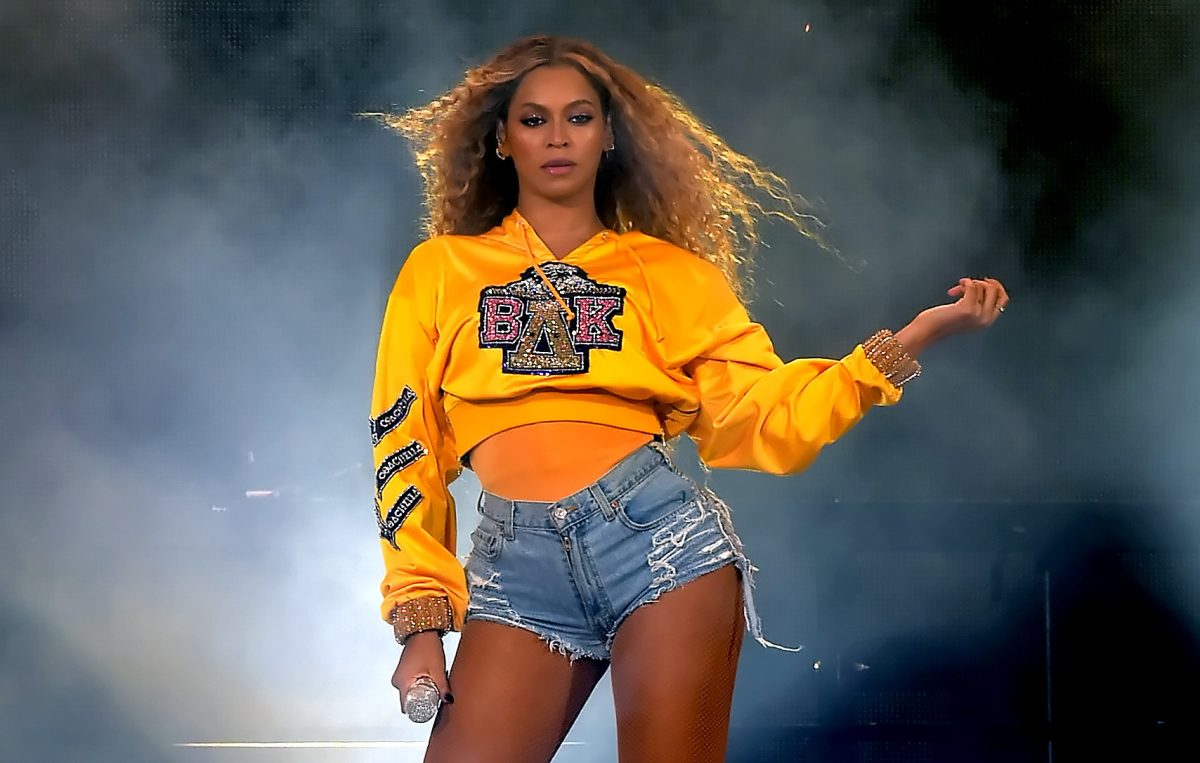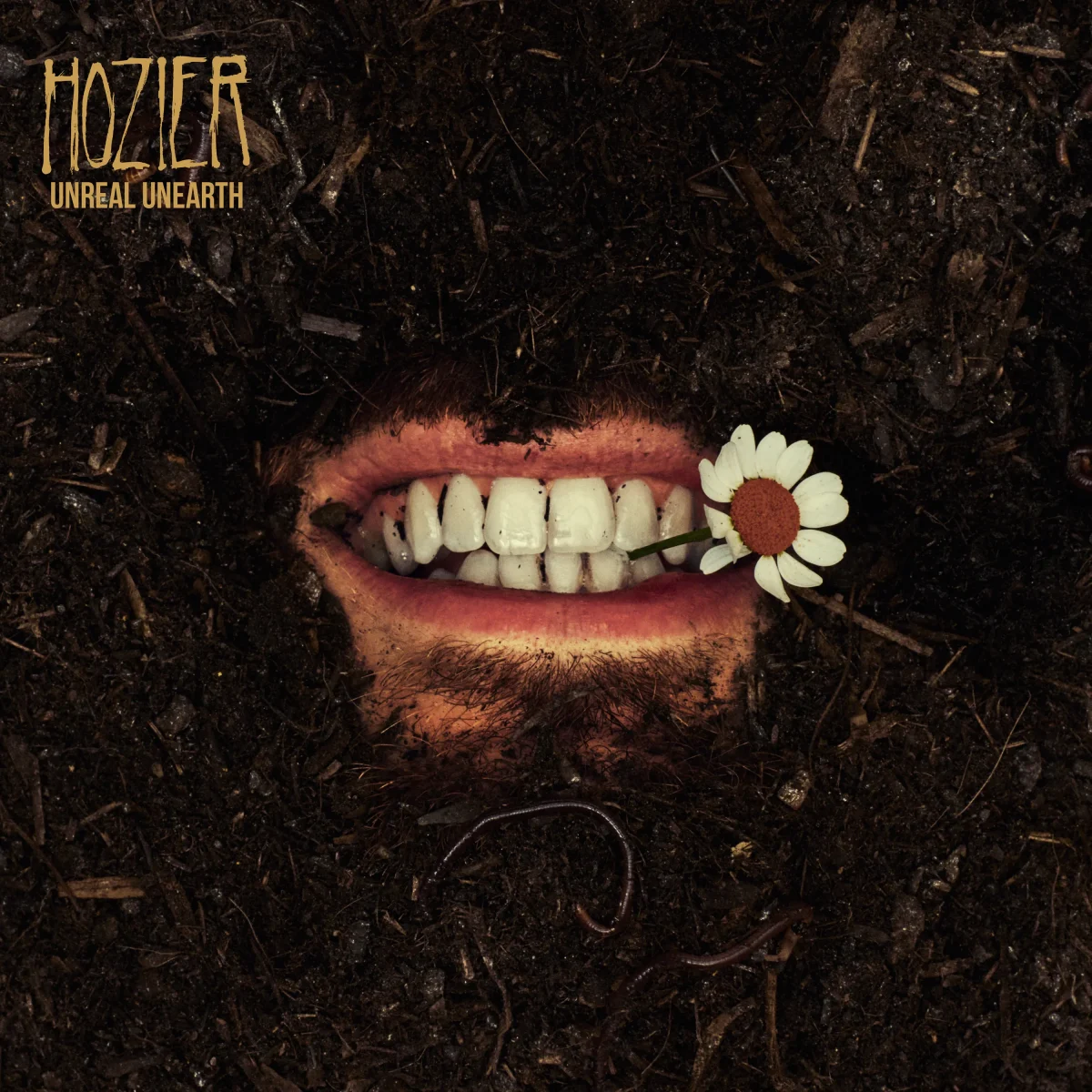UMass hasn’t looked or felt like this since 1995, when Phish last played here. Thousands of fans gathered outside the Mullins Center to try to buy, trade, and sell Phish tickets before the show began. A dreadlocked family of four stood together with a sign that read: “Who’s got our Saturday tickets?” A grown man stood, crying in the box office after losing his tickets, and not being able to get any more. A young Hampshire student waited eagerly at the front of the line after arriving at noon to buy an original poster and t-shirt.
At least fifteen minutes before Phish even came onstage, thousands of audience members stood peacefully, eyes closed and smiling, nodding their heads to the invisible, but present energy that they were collectively experiencing. Phish refers to this energy as the “vibration of life,” the steady buzz of seven beats per second that energize you…for the rest of the evening.” When Phish played the Mullins Center in 1994, guitarist Trey Anastasio took a break in a song to explain the “vibration of life,” adding that “you gotta be careful with this stuff… it’s powerful stuff.” Whether it is coincidental that seven beats per second equals 420 beats per minute is still unknown.
About an hour after the show was scheduled to begin, guitarist Trey Anastasio, bassist Mike Gordon, keyboardist Page McConnell, and drummer Jon Fishman made their way to the stage, greeted with uproarious rejoicing, laughter, applause, and the shouting of nicknames and song titles. Trey scratched a few sounds out of his guitar, Fishman loosely followed him, and the rest of the band gradually joined in with the upbeat, chirpy chord progression of “Meatstick,” which segued into Fishman drumming the introduction to “Party Time,” a new song that he wrote for their 2009 album “Joy.” It was a festive, simple, even silly song of boisterous drums, organ, and the repeating line “Party Time! Party Time!” Perhaps they played it because of UMass’ party school reputation; more likely, it was to let us all know we were in for a party all weekend.
As soon as it ended, Phish dove into more familiar territory with “Golgi Apparatus,” written by Anastasio in eighth grade. A short, energetic gem of a composition, “Golgi” has been a crowd pleaser since its 1986 debut. Next came “Kill Devil Falls,” a new, simple, rock-based song that Phish has insisted on playing frequently over the past year.
Next up was “Tweezer,” an old classic, as if to say “sorry for all the new stuff!” Debuting twenty years ago, “Tweezer” is a simple, pentatonic-based riff that evolves into a lengthy jam, often reaching abstract, atonal points at peaks. After the crooning, lounge-jazzy “Lawn Boy,” sung by McConnell, a speedy, bluegrass tune, “Sparkle,” and a furious and punk rock “Big Black Furry Creature From Mars,” came Phish’s famous rendition of “Hold Your Head Up,” featuring Trey on drums, and Fishman on vocals.
Next came a rare moment, surely one that will go down in “phishtory.” Fishman, famous for playing not only drums, but also the Electrolux vacuum cleaner, played a vacuum solo over Syd Barret’s “Love You,” using the hose of the cleaner as a mouthpiece, while changing the size of the opening of his mouth to alter the pitch. After a few self-deprecating remarks he made about the abrasive sound of his vacuum and annoying nature of his solos, he sat back down at the drums.
Trey picked his guitar back up and began “Possum,” causing the audience to whip out their tickets (which have a painting of an ugly possum) and wave them around while chanting the lyrics. The “Possum” jam lasted five energetic minutes, but never climaxed quite as powerfully as it has in the past (listen to the August 17 version for an example). The set ended with “Tweezer Reprise” with lyrics from “Meatstick” substituted in.
After a fifteen-minute break, the lights dimmed for the second set, and the quartet once again took their places on the stage. Noise poured out of the stage and filled the room with the bubbling, murky wall of sound that could only mean “Down With Disease” is first up. An old favorite, “Down With Disease” is a funky rock tune with an extended, meandering jam, which rocked nicely for a few minutes, but never quite found its energy last night, as it has in the past. Any concerns about Phish’s energy quickly subsided when they began “My Friend, My Friend,” a delicately constructed piece that begins as a triumphant, classical sounding piece suitable for an action movie soundtrack. It continued into an unsettling, dark segment, possibly referring to Shakespeare’s Macbeth.
A few more songs passed, including a notably high energy “Maze,” and an always appreciated “Piper,” but it wasn’t until “Harry Hood,” an extensive, complexly arranged classic, that the audience knew the night would end in glory. After a long, palette-cleansing jam, Phish segued into the familiar intro arpeggio to “You Enjoy Myself,” arguably the band’s most beloved and interesting composition. Through several tightly composed sections, a choreographed trampoline dance, and a fiery jam, “YEM” ended with the usual vocal jam, an eerie, improvised a cappella that finished with piercing, unison screams, then faded to nothing. Night one was over.
Night two began with “ACDC Bag,” which confirmed the predictions of the audience, who had been expecting it as the opener all day. Phish moved into “Camel Walk,” another eagerly awaited and predicted early set piece, but shocked the crowd by segueing into “Divided Sky,” an old, emotional, and incredibly precise composition followed by an intricately structured jam with a wailing, sustained solo.
More beloved pieces followed, including the simmering, Latin-influenced “Stash,” “Fee” (sung through a megaphone), and the new, multifaceted progressive rock composition, “Time Turns Elastic,” which took Phish fans a year to learn to embrace and enjoy. Next was “Cavern,” an anthemic celebration that convinced the audience the set was closing until the opening doodles of “Run Like An Antelope” let the crowd know there was still more life in this set. Starting with a loosely arranged instrumental introduction, “Antelope” suddenly begins its jam with a jagged crescendo of distorted chords, and launches into a building minor jam, which peaked with pure energy and cacophony before ending on a dime and reverting to the original chords.
“Set the gear shift for the high gear of your soul! You gotta run like an antelope… Out of control!” was what Trey left the Mullins Center with before the set break.
Set two began more modestly, with simpler, more standard rock songs. While the songs were less imaginative than the previous set’s, the following jams did not disappoint. It wasn’t until “The Lizards”, a long masterpiece that explored the history of the mythical land of “Gamehenge,” that the set took off.
More high energy tunes followed, and the show ended with the long-awaited “David Bowie,” which mixed tightly composed jazz with improvised heavy metal shredding, climaxing in the biggest peak of the tour. The encore of “Chalkdust Torture,” a blisteringly intense song about the woes and stresses of education, served to remind UMass that after all, it is a school night, and it’s time to get some sleep. The “Chalkdust” jam sealed the deal on this show’s place in history, and left fans deeply satisfied and ready to download their copy of the show to cherish for years to come.







Taneka Yancik • Jan 4, 2012 at 5:07 pm
There are several posts on the market near this, I believe taking there reference could experience made this spot or article really informative. I am not saying expression this information is unhealthy. Simply I can pronounce the info provided here was unique, merely so it will be more in close proximity to complete, supporting with other former information will receive been actually good. The points you receive touched allow me to share really important, thus I’ll spot a number of the information here to make this actually perfect for entirely the newbie’s here. Thank you this data. Actually helpful!
Larry Parnass • Oct 27, 2010 at 12:32 pm
Ben Silverman’s review of the two-night stand by Phish is one of the most informed pieces of music criticism I’ve read in years. Silverman clearly knows this band. His commentary puts the nights in context and proves that after a 15-year absence, these Phish gigs did make history.